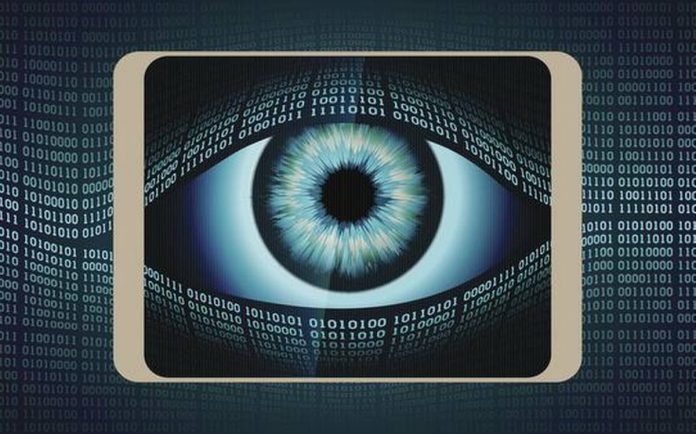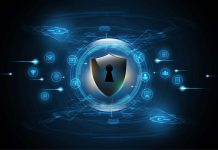This article is written by Smriti Paudel and the article is edited by Khushi Sharma (Trainee Associate, Blog iPleaders).
This article has been published by Diva Rai.
Introduction
Closed-Circuit Television(CCTV) Surveillance has become essential for security purposes but at the same time, concerns over the privacy of individuals and groups owing to the nature of its installation and use. When World War II started, security technologies and their applications were still relatively new. Originally, CCTV technology was designed to actually learn about weapons rather than people. At the time, only live streams, not records, could be viewed via CCTV. Since the 1990s, CCTV has been proliferated all over the globe. Today, it is widely used to monitor various aspects of life. It lets individuals keep an eye on everything from workplaces to restaurants, stores, and even their own residences.
CCTV Surveillance for Crime Prevention
The use of CCTV has been linked to both a big and little reduction in crime. CCTV is considered to be a form of Situational Crime Prevention (SCP) strategy that increases levels of formal surveillance within a target area. The situational approach to crime prevention concentrates on the area in which crime happens rather than the criminal themselves. CCTV might help to reduce crime by increasing the likelihood of perpetrators being identified and punished. It has the potential to discourage criminals who do not want to be caught. It also assists police and security personnel by alerting them to suspicious activity.
The effectiveness of CCTV varies greatly depending on the circumstances. According to the Crime Reduction Toolkit of the College of Policing, CCTV reduces 16 crimes out of 100, and 26 crimes out of 100 for vehicle offenses. In light of all the studies the toolkit consulted, they reasoned that CCTV’s viability depends on how and where it is used.
Can CCTV Surveillance Invade the Right to Privacy
In the midst of the beneficial outcomes, a fundamental question has arisen: when does CCTV surveillance step over the boundary from an effective security instrument to an unlawful invasion of an individual’s reasonable expectation of privacy? A reasonable expectation of privacy refers to areas or components of one’s very own life where a sensible person would expect some degree of privacy.
These are a few examples of places where a person has a reasonable expectation of privacy:
- Rooms of hotel
- Residence location
- Public areas such as public restrooms
- Telephone booths
- Changing room
- Notable zones of prison
In U.S. v. Vargas the Court’s analysis centered around whether Mr. Vargas had a reasonable expectation of privacy not to have his front yard constantly observed and recorded by a camera with zooming and panning capabilities hidden on a telephone pole over a hundred yards away for six weeks, and whether his subjective expectation of privacy is rationally reasonable. The court ruled that a video surveillance camera focusing on singular’s front yard in a rural location violated his reasonable expectation of privacy.
Similarly, in Dr. Fairhurst vs. Woodard, the court ruled that the privacy of a neighbor was “unjustifiably invaded” by security cameras installed in a residence. The security camera was found to monitor practically the whole garden and parking space of Fairhurst in the judgment. Woodard could also watch videos on his phone or wristwatch at any moment. The Claimant was disturbed by Defendant’s apparent contempt for others’ privacy and increased the Claimant’s suspicion. Dr. Faihurst demanded compensatory damages as well as injunctive remedies. This data privacy case of Fairhurst v Woodard adds to the continuing discussion about the mainstream of domestic surveillance, as home surveillance technology has become easily accessibly rising privacy concerns.
The general public can now purchase tools that were previously solely available to high-level law authorities and government agents. CCTV has provided individuals and companies with formerly impossible levels of security, but the ease with which security cameras can be installed has also led to considerable abuses. According to cyber law experts, multiple cases of installed CCTV cameras breaching privacy are arising. There have been incidences in which CCTV cameras have captured celebrities and high-profile citizens, and those footage has been sold for money. It is also possible that the data gathered by CCTV cameras will be misused by private companies and organizations for political or terrorist motives, putting public privacy at risk. Modern technology is enhancing efficiency or security at the cost of privacy.
Laws Governing CCTV Surveillance
The laws governing CCTV surveillance vary widely from country to country. There is a reasonable expectation of privacy in most nations. Like most laws, there are several loopholes and circumstances, but here’s a quick rundown of existing surveillance cameras rules in the global context.
European Union
Data protection is a basic right protected by European law and stated in Article 8 of the European Union’s Charter of Fundamental Rights. CCTV footage in the EU is subjected to the General Data Protection Regulation (GDPR). Non-compliance to GDPR can lead to hefty fines. Prior to installing a surveillance camera in the EU, companies should consider the following:
- A Data Protection Impact Assessment (DPIA) must be completed;
- If the objective of the processing could be achieved through other measures that are less invasive to the data subject’s basic rights and freedoms;
- Whether or if the video surveillance system is appropriate for achieving the targeted aim, and whether or not it is adequate and essential for its purposes.
United Kingdom
In the United Kingdom, CCTV legislation was enacted in 2012, accompanied by a Code of Conduct in 2013. There are three key sections of CCTV legislation of the UK:
- The Protection of Freedoms Act 2012
This act mainly focuses on the citizen’s protection of freedom in the United Kingdom
- The Surveillance Camera Code of Practice 2013 (the ‘SCCOP’)
The SCCOP Act is intended to maintain a balance between the requirement for CCTV cameras and the public’s desire for privacy.
- The Data Protection Act (the ‘DPA’)
Individuals have the right to view information stored about them, including CCTV recordings, under the Data Protection Act.
United States of America
The laws governing video surveillance in the USA vary from one state to the next. Installing a residential security camera and recording video is normally lawful in the United States. However, citizens of the United States are guaranteed reasonable expectations of privacy. In States like Alabama, Florida, Kansas; CCTV surveillance in private places is not allowed. As with video surveillance laws, audio recording through security cameras laws also varies from state to state. There are now federal rules in effect regarding audio recording. According to federal law, recording a conversation is permissible as long as one of the parties engaged is aware of it.
India
India, as a developing country, has made significant changes to its information technology rules, yet there are still plenty more to be made. The IT Act of 2000 is the parent legislation governing electronic surveillance. If a camera captures or transmits photos of a person’s private parts, male or female, without consent, the criminal can be charged under Section 66E. The Information Technology Rules, 2021, and the Right to Privacy and Data Protection Bill, 2019 also deal with surveillance. However, there are no detailed guidelines and legislation for CCTV surveillance in India.
Nepal
The Privacy Act, 2018 of Nepal makes it illegal to use CCTV cameras in a way that infringes on people’s privacy. As per the Privacy Rules 2020, information concerning the installation of CCTV cameras for supervising public security and public movement shall be provided to the relevant District Administration Office (DAO). The DAO may appoint an examination and observation team to determine if the companies and individuals operating the CCTV cameras have adhered to legislative requirements. Privacy Rules, 2020 also prohibits the use of CCTV footages for public or commercial purposes. Following the Electronic Transactions Act, anybody who uses a CCTV camera in violation of the law faces legal consequences.
CCTV Surveillance Done Right
If your country does not have any laws regarding CCTV surveillance, you can’t be prosecuted even if you misuse it, right? False. Because there is no legislation, the judge has no set of guidelines to adhere to when ruling over the case. However, each case is treated separately. The judge may still find the acts unreasonable or rule in favor of the victim whose rights were infringed. Countries can introduce CCTV surveillance regulations at any moment, regardless of current laws. So, before you install security cameras, be armed with proper guidelines and know legal limits on CCTV surveillance which will protect you from legal ramifications.
Is Consent for CCTV Surveillance a legal requirement?
As video surveillance varies from one country to another, the requirement of consent for recording videos through CCTV also varies. Consent laws of nations address whether it is allowed to record someone on video or audio without their approval. Usually, consent of one or both parties is required for recording. To comply with GDPR, businesses must put up signs that are clearly visible and readable indicating that CCTV is in operation. It is always better to place security cameras where they can be easily seen. A judge is also less likely to accept video evidence obtained from a camera in a private place such as a washroom or a bedroom unless all parties involved are aware that they are being recorded.

Are Hidden Cameras Unlawful?
Consent law and the use of hidden cameras are now hotly debated topics. As mentioned earlier, laws vary by state. Evaluation of the legality of hidden cameras is based on where one resides and how it is being used. Hidden cameras are often not lawful to put in bathrooms or bedrooms where someone is staying, or any other area where people would expect to have a higher degree of privacy.However, having hidden cameras in public spaces such as restaurants, outdoor parks, shopping malls, city streets is normally lawful, but it shouldn’t be used to infringe on the right to privacy.
Some states in the USA, including California, Georgia, Arkansas, Delaware, Kansas, Utah, Hawaii, South Dakota, etc require employees’ written agreement to have a hidden camera watching them. It is vital to remember that conducting CCTV surveillance through hidden cameras in order to conduct a crime or using the contents to perform blackmail against someone is prohibited.
Acceptance of CCTV Surveillance Footage In Court
CCTV has evolved into a crime-prevention tool, and the footage captured by security cameras has become an increasingly crucial piece of evidence in court matters. CCTV footage discloses the true nature of the incident and can help identify the offender. However, the audio and video of the footage, or solely video in the case of video-only footage, must pass particular tests in the respective formats to ensure that the electronic evidence, which is the footage, is not tampered with or is authentic. When video surveillance records a crime in a criminal case, the recording must be convincing enough to outweigh whatever rights the accused may have.
Ld. Courts have recognized the relevance and value of CCTV in evidence during a trial. The genuineness of CCTV footage was mentioned in Gubinas and Radavicius v HM Advocate, High Court at Aberdeen, Scotland, in Para. 59, it was observed that even if all the witnesses say one thing and CCTV shows something different, the electronic evidence will be relied on rather than the visual field evidence given by the witness.
Note: Even if a law enforcement officer requests video footage of your private home security camera, you have the right to say no since recorded images from your home security camera are your private property.
Conclusion
Well and selectively operated CCTV surveillance systems are valuable instruments for addressing security challenges; but, poorly configured systems provide a false sense of security while simultaneously invading our privacy and infringing on other fundamental rights. With the advancement of increasingly sophisticated surveillance technologies, comprehensive data protection and privacy law that addresses the loopholes in existing surveillance frameworks must be implemented. Also, an individual’s privacy must be balanced against the public interest and safety.
LawSikho has created a telegram group for exchanging legal knowledge, referrals and various opportunities. You can click on this link and join:
https://t.me/joinchat/L9vr7LmS9pJjYTQ9
Follow us on Instagram and subscribe to our YouTube channel for more amazing legal content.
 Serato DJ Crack 2025Serato DJ PRO Crack
Serato DJ Crack 2025Serato DJ PRO Crack









 Allow notifications
Allow notifications


